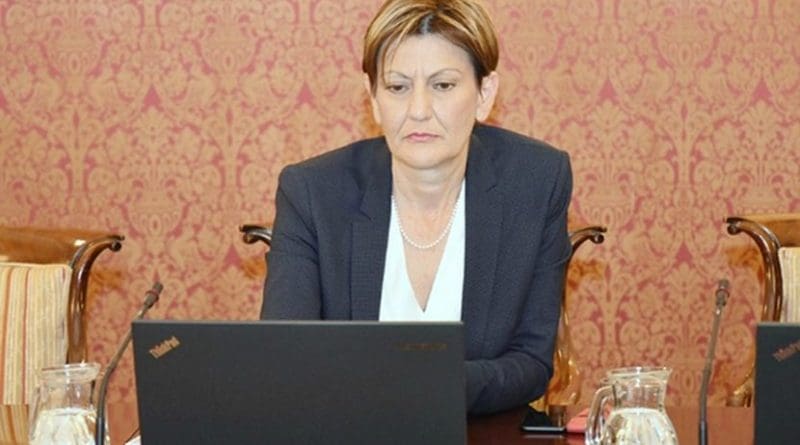Croatia: Vice-PM Rejects Agrokor Nepotism Allegations
By Sven Milekic
Croatian Vice-Prime Minister and Economy Minister Martina Dalic on Wednesday dismissed media allegations that she using her position to benefit her friends and business associates in the process of passing a law on the state management of ailing private company Agrokor.
Agrokor, the biggest Croatian private company, employing around 40,000 in the country, fell into financial problems at the beginning of 2017. In April last year, the parliament passed a special law to bring in a 15-month extraordinary state management of the company, to stop it going bankrupt and save jobs.
Earlier on Wednesday, news website Index published leaked emails containing pieces of correspondence between Dalic and various consultants, lawyers and brokers who later became members of the state extraordinary management of Agrokor, or whose companies made lucrative deals with Agrokor.
Dalic told regional N1 TV that she thinks she “didn’t do anything illegal”.
While testifying before a parliamentary committee in February, Dalic said that she was the main author of the law, but had taken opinions from consultants, lawyers and experts outside of state institutions.
When asked about this on Wednesday, Dalic said that there was no secrecy in the process, and the final result was that the company was saved. She said that it was her obligation to make the contacts with the consultants, lawyers and brokers.
Prime Minister Andrej Plenkovic also dismissed the allegations of wrongdoing, claiming that “everything was done for the benefit of the Croatian economy”. He added that Dalic still has his trust.
Screenshots of emails published by Index allegedly show that Dalic used her private account while communicating with people who were later involved in the work of the state management in Agrokor.
Some of the companies later got lucrative agreements with the new Agrokor management, while one of them, Ante Ramljak, was named the extraordinary state manager.
Index also alleged that no contract was signed with any of these people in order to conceal the whole process.
Dalic said on Wednesday that the consultants, lawyers and brokers were not paid because they agreed to give their suggestions and advice for free.
The leaked emails may affect the process of reaching a settlement between all Agrokor’s creditors – suppliers, banks and bondholders – by July 10, when the 15-month state management will end.
The opposition in parliament described the emails as a scandal that should lead to snap elections.
Gordan Maras, an MP from the Social Democratic Party, SDP, called the whole issue “shocking”, claiming that Dalic worked on the draft of the law along with her friends and acquaintances.
“I call on the state attorney to step into action immediately, while the prime minister should remove the minister [Dalic] who has compromised him and the whole state,” Maras said.
The opposition has already tried to oust Dalic for her role in the process of drafting the law on Agrokor. However, it did not manage to gather enough votes to remove her in a non-confidence vote in April.

